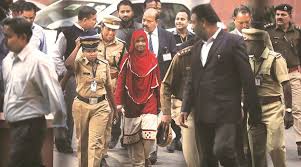Couples who wish to marry under the Special Marriage Act must serve a 30-day notice during which their personal details are on public display. This violates their privacy and leaves many vulnerable to parental and community reprisal.

In October last year soon after ‘S’ informed the district magistrate’s office in Lucknow that she wanted to get married under the Special Marriage Act (SMA), she received an unexpected invitation at home: to visit the local police station.
The police met her, her partner and her father to conduct an ‘inquiry’. Why get married in court? Was the father ok with her decision? Fortunately for ‘S’, he was, even though the Act does not require parental permission, only consenting adults.
“In Uttar Pradesh it is routine to call couples and often their parents to the police station, particularly in cases of inter-religious marriages,” said Lucknow-based lawyer Renu Mishra.
Enacted in 1954, the SMA was for those who wished to marry outside their religion’s personal laws and customs, caste and, often, parental consent.